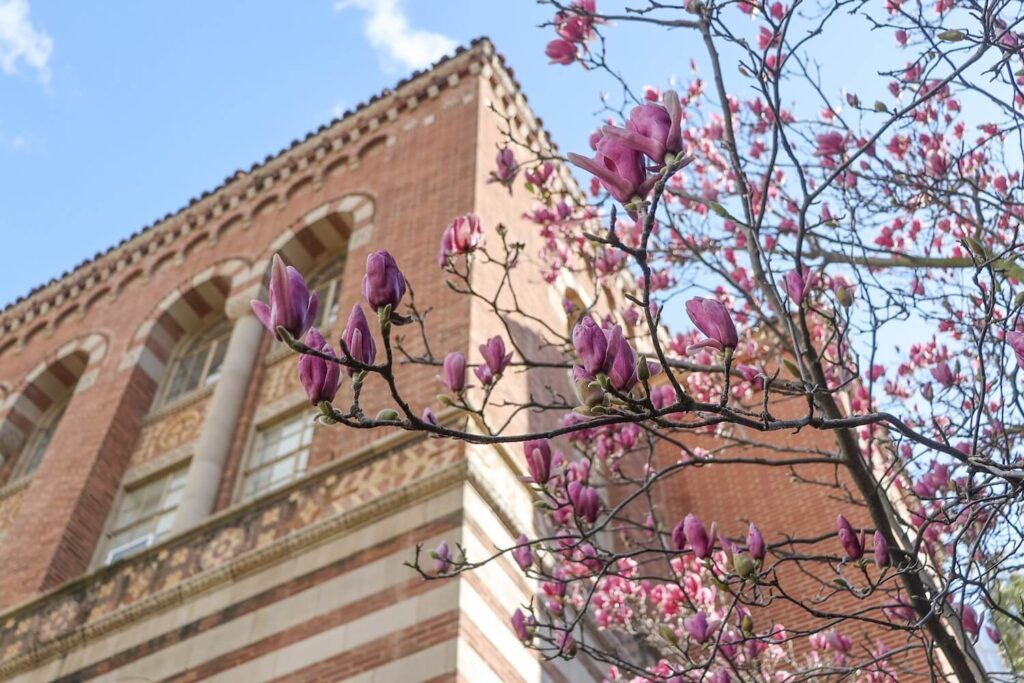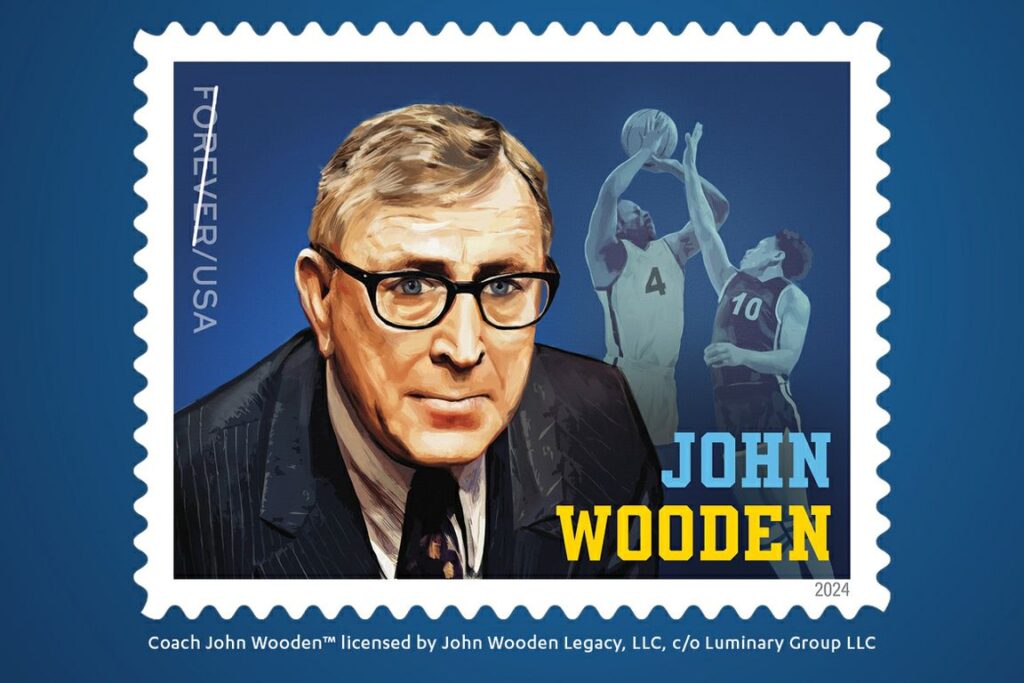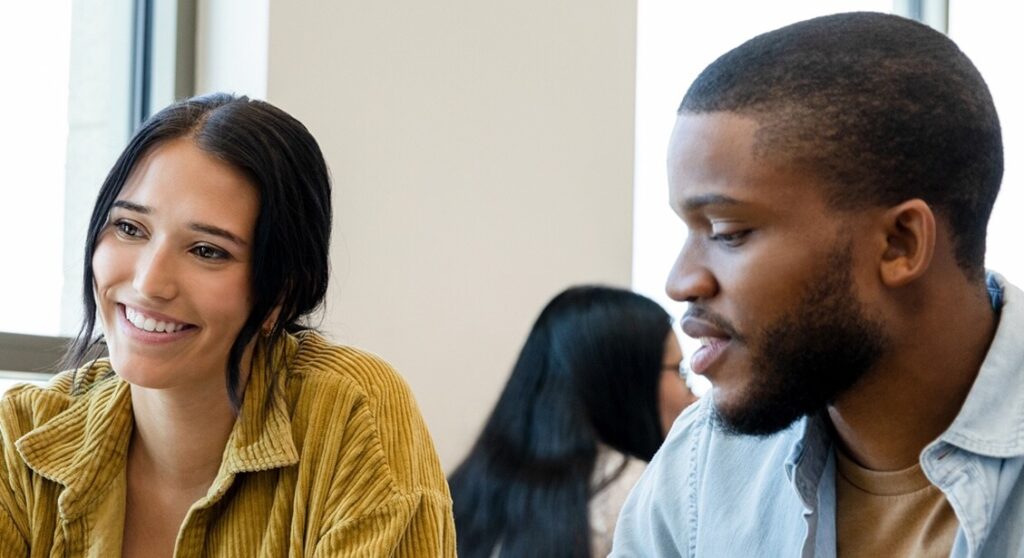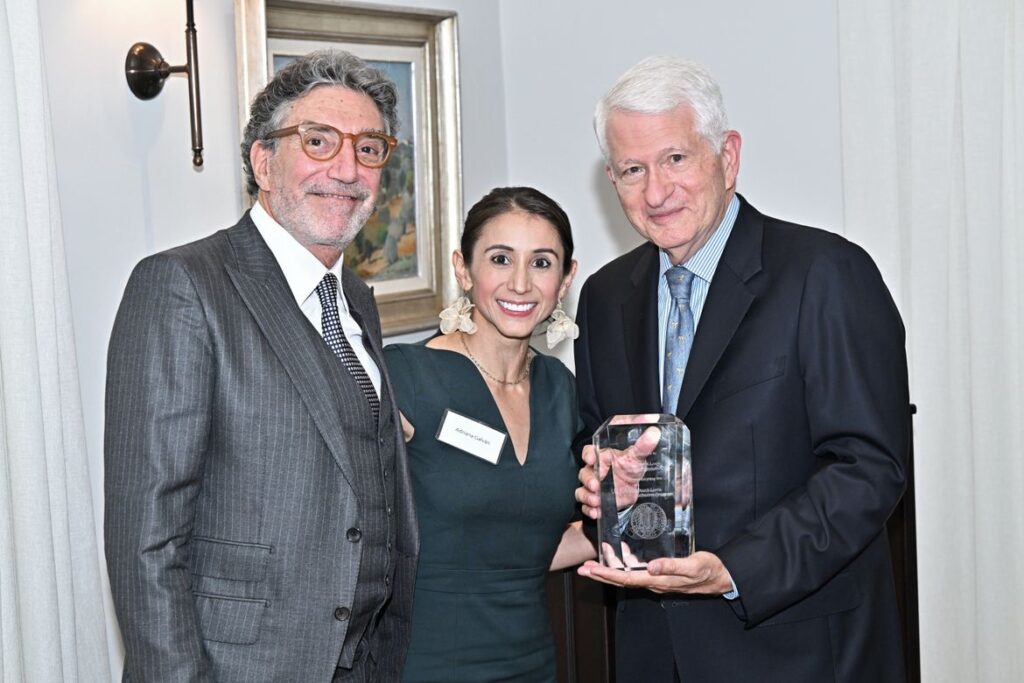
This issue touches upon UCLA’s past, present and future. The US Postal Service recently unveiled a postal stamp honoring legendary men’s basketball coach John Wooden, a new initiative is helping foster critical dialogue skills on campus and we are primed to continue pushing the boundaries of research thanks to our donors’ generous support.
In this issue
- A New Honor for Coach Wooden
- Learning to Dialogue Across Difference
- UCLA’s Impact Multiplied Through Generous Support
A New Honor for Coach Wooden

In February, representatives from the United States Postal Service joined us on campus to unveil a limited edition Forever postal stamp honoring renowned former UCLA men’s basketball coach John Wooden. It was a wonderful ceremony, complete with guest appearances from former Bruin and NBA titan Kareem Abdul-Jabbar, former UCLA gymnastics coach Valorie Kondos Field and several other Bruin legends.
The dedication of a USPS Forever stamp is a high honor, but Wooden — who passed away in 2010 at the age of 99 — is exceedingly deserving. As Bruins know well, he was quite simply one of the greatest coaches in the history of American sports. His incredible success at UCLA included an eye-popping 10 NCAA men’s basketball national championships during the 1960s and 1970s — a record that still stands today.
During his run, Wooden’s achievements were seen as bordering on supernatural, earning him the nickname “the Wizard of Westwood” (though Wooden himself never thought much of the term). But those who had the great pleasure of being acquainted with him personally knew him by another name: He was always — always — just: “Coach.”
“Coach” is a title that captures him well, and it goes beyond his leadership on the court. It speaks to his broader abilities as a mentor and guide, a person whose special wisdom would allow you to better understand a situation, solve a nagging problem or just help bring out your best. The set of personal principles he developed, encapsulated in his Pyramid of Success, were meant to be applied in any setting — on the court, in the classroom, in the boardroom, even at home. They allowed him to reach stratospheric heights with his UCLA teams, and they have made him a revered figure in the study of leadership ever since.
I first met Coach after I was named UCLA’s chancellor in 2007 but before I even took office. It was, essentially, a pilgrimage. I flew out from Virginia to California at the invitation of a long-serving vice chancellor, Pete Blackman, who had played for Coach when he was a student. Pete and I visited Coach for breakfast, picking him up at his condo before heading to the Valley Inn in Sherman Oaks, where he practically held court in his later years. It was a long meal — good food coupled with a wide-ranging conversation full of wisdom and advice on how to lead.
I am enormously thankful that the USPS has added to Coach Wooden’s long legacy with the dedication of this new stamp. A Forever stamp does not expire and can be used as postage in perpetuity. And that is very appropriate for a man whose timeless wisdom will shape lives for decades to come.
Learning to Dialogue Across Difference

In a diverse community like ours, one thing that we can count on is that we will disagree. That is why EVCP Darnell Hunt convened leaders across campus in early 2023 to consider how we can fulfill our responsibility as a public institution by building our collective capacity for engaging in difficult conversations. This initiative is known as Dialogue across Difference (DaD) and is led by David Myers, Distinguished Professor of History and Director of the Initiative to Study Hate.
Dialogue across Difference promotes the values of intellectual engagement, curiosity, empathy, active listening and critical thinking on the UCLA campus. The initiative seeks to make our campus a site of open, passionate, and informed discussion and research. The goal is not like-mindedness, but instead developing the tools and abilities necessary for critical thinking, respectful discourse and productive conversations across varying perspectives. This is both a purposeful and proactive approach to how we will listen, communicate, and learn from one another.
The initiative is composed of four prongs that include (1) campus collaboration and partnerships, (2) a student leadership development program, (3) a classroom-based teaching component, and (4) public programs that focus on training for stakeholders across the UCLA campus. The initiative both develops its own offerings and helps promote events that align with its values.
The first prong, campus collaboration and partnerships, brings together existing resources from across the UCLA campus to share best practices, respond to campus needs and be accessible throughout the academic year.
The inaugural DaD student leadership cohort, the second prong, launched in fall 2023 and helps participants to develop the capacity to lead and engage our community in DaD events and projects. Out of dozens of applicants, 13 students were selected for this initial cohort. Students have engaged in dialogue training sessions in preparation for developing their own DaD programming this spring.
The initial offerings under the classroom-based teaching prong engage UCLA’s Fiat Lux courses that advance the ideals of DaD. Faculty have developed 11 Fiat Lux courses that are being offered this Spring quarter, and touch on topics including disinformation, neurodiversity, and music as a tool for cultural understanding.
The fourth DaD prong focuses on training programs and workshops that will be available to students, faculty and staff interested in building their skills for dialogue across differences. Led by master facilitator and UCLA alum Maia Ferdman, this prong aims to build our campus community members’ capacity to engage in difficult conversations, facilitate or lead conversations across differences, and convene people of different backgrounds and perspectives in campus events and programs that elevate and embody DaD values.
To this end, the “Keywords: Terms of Contention in Public Debate” event series was launched to highlight words that are particularly divisive and hold varied meanings for different communities. The first Keywords event in February featured a dialogue between Palestinian American legal scholar Prof. Omar Dajani and Jewish-Candadian scholar Prof. Mira Sucharov about the word “Zionism.” Upcoming Keywords events will examine terms including “Equity” and “From the River to the Sea.”
Recent world events have reopened long-existing pains and exposed some of the divides that exist on college campuses. Yet universities can be the place where we model and export the public discourse we want to see in our broader communities. DaD represents UCLA’s long-term commitment to embracing the discomfort of difficult conversations, opening channels of communication, and developing our ability to engage and learn from one another.
UCLA’s Impact Multiplied Through Generous Support

I often say that UCLA is public when it comes to our mission, but partly private when it comes to our finances. That is because we rely on philanthropic support from alumni and friends to supplement the funding we receive from the state and other sources. This additional support helps us deepen our university’s impact.
Many dedicated supporters of UCLA have made generous contributions to our institution, and I would like to highlight just a few recent donations. These gifts will allow our institution to continue to advance research supporting nonprofits, innovate breakthroughs in medicine, advocate for social justice and cultivate future leaders.
A fitting tribute to the field of philanthropy is Lowell Milken’s recent gift of $8.05 million which, combined with his 2021 gift of $3.7 million, enabled the UCLA School of Law to launch the Lowell Milken Center for Philanthropy and Nonprofits. Announced in January, the center will focus on the study and analysis of philanthropy and nonprofit law and policy. Drawing on Milken’s background and lens on philanthropy, his gift is helping UCLA further develop its leadership position in this critical area of legal scholarship and training.
We also announced in January that alumnus Kirk Dunn invested $2 million to endow research focused on cardiovascular and cardiometabolic health in honor of his late son Connor Dunn. This gift will support the work of Dr. Tamer Sallam, vice chair of the UCLA Department of Medicine and executive director of the UCLA Specialty Training and Advanced Research (STAR) Program. Dr. Sallam’s research is aimed at accelerating discoveries and clinical strategies targeting inflammation and metabolism in heart disease, which has the potential to make a considerable impact on people’s lives through the innovative clinical tools that will emerge.
UCLA alumni and former student activists Helen and Morgan Chu have pledged $10 million to support the work of the UCLA Institute of American Cultures. Building on the Chus’ advocacy for ethnic studies programs as UCLA students in the 1960s, their gift, which was announced in February, will strengthen the work they started and ensure the campus remains a leader in increasing awareness of the histories, cultures, contributions and experiences of the different racial and ethnic groups that comprise the American people.
We also announced in February that the Howard and Irene Levine Family Foundation pledged $10 million to endow four chairs and a research fund in the UCLA Department of Neurology to support basic scientific research on movement disorders including Parkinson’s disease. The donations honor Dr. Jeff Bronstein, director of the UCLA Movement Disorders Program and Clinic. UCLA has been on the leading edge of discovery in this space and these endowments will help us continue to improve our understanding and treatment of neurodegenerative diseases.
And finally, thanks to a $24.5 million gift from The Chuck Lorre Family Foundation, UCLA can continue empowering even more STEM students who come from low-income families. With the new UCLA Chuck Lorre Scholars Program, announced in March, UCLA will cultivate more leaders in science and technology and increase its available scholarship funding. Given the remarkable success of the existing Big Bang Theory Scholarship program, television producer and co-creator of “The Big Bang Theory” Chuck Lorre pledged this new gift to the university. It will enable us to double the number of undergraduate scholarship recipients to 80 each year; offer four years of scholarship, mentorship and support services beginning the summer before freshman year; and provide opportunities for graduate school funding.
These are just a handful of the wonderful and critically important gifts to UCLA that help advance our work. Because of this support, UCLA can continue to fulfill its public mission in impactful ways: through rigorous teaching and scholarship, studying and solving world problems and strengthening our society by developing leaders from all backgrounds.
